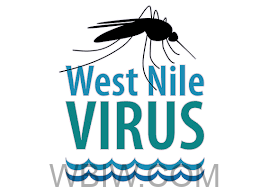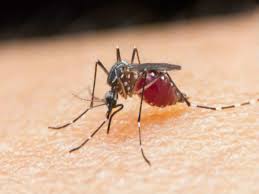
SEYMOUR – The Jackson County Health Department has been notified by State health officials that a positive pool of mosquitoes infected with West Nile virus has been found in the central area of Jackson County.

This is the second pool found in the state.
West Nile virus is commonly found throughout the state each summer, so it is expected to see activity in more counties as the season progresses.

“As soon as we start detecting West Nile virus in mosquitoes, we know people are at greater risk for infection,” said Jennifer Brown, a veterinary epidemiologist at the Indiana Department of Health. “The good news is there are simple, effective steps Hoosiers can take to protect themselves from being bitten by a mosquito.”
The Jackson County Health Department recommends that residents take the following protective steps:
- Avoid being outdoors during prime mosquito biting times, dusk to dawn, when possible;
- Apply insect repellent containing DEET, picaradin, or oil of lemon eucalyptus to clothes and exposed skin;
- Install or repair screens on windows and doors to keep mosquitoes out of the home; and
- When possible, wear long-sleeved shirts and pants when outside.
Since 2002, when Indiana had its first human case of West Nile virus, more than 20 Hoosiers have died from the illness.
West Nile virus is transmitted to humans by mosquitoes that have first bitten an infected bird. A person bitten by an infected mosquito may show symptoms three to 15 days after the bite.
The Department of Centers for Disease Controls and Prevention reports:
No symptoms in most people. Most people (8 out of 10) infected with West Nile virus do not develop any symptoms.
Febrile illness (fever) in some people. About 1 in 5 people who are infected develop a fever with other symptoms such as headache, body aches, joint pains, vomiting, diarrhea, or rash. Most people with febrile illness due to West Nile virus recover completely, but fatigue and weakness can last for weeks or months.
Serious symptoms in a few people. About 1 in 150 people who are infected develop a severe illness affecting the central nervous system such as encephalitis (inflammation of the brain) or meningitis (inflammation of the membranes that surround the brain and spinal cord).
- Symptoms of severe illness include high fever, headache, neck stiffness, stupor, disorientation, coma, tremors, convulsions, muscle weakness, vision loss, numbness, and paralysis.
- Severe illness can occur in people of any age; however, people over 60 years of age are at greater risk for severe illness if they are infected (1 in 50 people). People with certain medical conditions, such as cancer, diabetes, hypertension, kidney disease, and people who have received organ transplants, are also at greater risk.
- Recovery from severe illness might take several weeks or months. Some effects on the central nervous system might be permanent.
- About 1 out of 10 people who develop severe illness affecting the central nervous system die.
- If you think you or a family member might have West Nile virus disease, talk with your healthcare provider.
For more information, visit the Jackson County Health Department or the Department of Centers for Disease Controls and Prevention websites.



